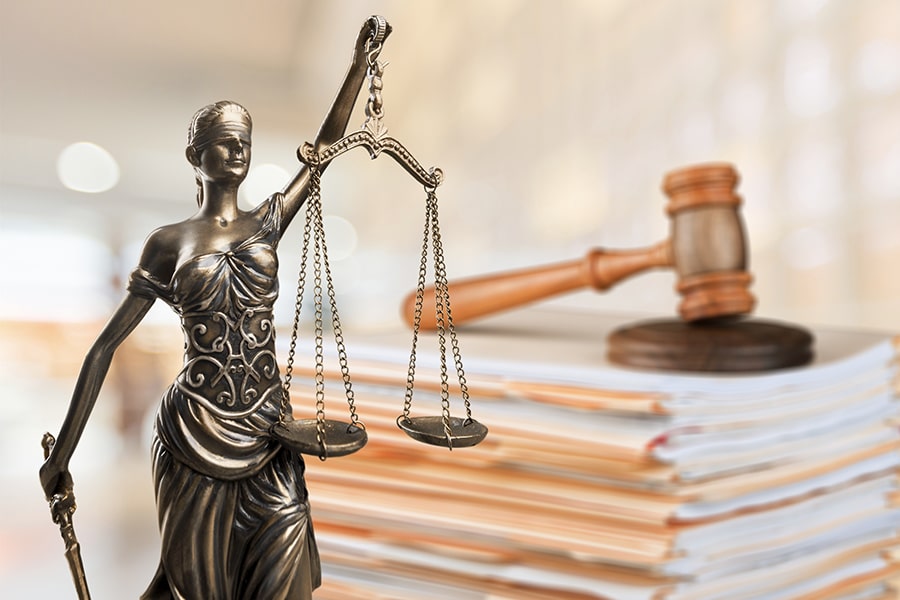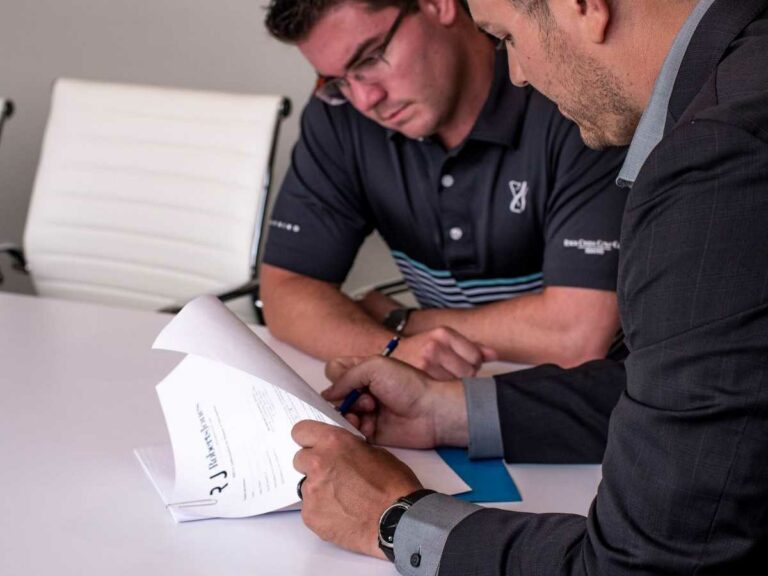It’s probably just about the most common question lawyers are asked: “Will my personal injury case go to trial?” This question applies to practically every type of case, whether it is a big-rig accident, a mishap at work, or someone injured at a construction site. What are the chances that your case will be heard in front of a jury?
The best answer is that the odds are much more likely your case will culminate in a settlement. In fact, fewer than 5 percent of personal injury cases make it to trial. And more than 95 percent of cases are settled pre-trial.
Difference Between a Settlement and a Trial
There are generally two methods available to collect damages from the negligent party after an accident. First off, the defendant or insurance company could present a settlement that the plaintiff accepts, or the plaintiff pursues a civil lawsuit as a means to obtain compensation.
A settlement happens when an insurer or defendant and the plaintiff come to terms on an offer of payment to the injured person. An offer can be presented prior to a lawsuit being filed. The offer can also be made during the trial, or while a jury is deliberating. The plaintiff relinquishes claims arising out of the specific incident and signs a release after a settlement agreement is reached.
Although it is possible that a civil lawsuit might provide the plaintiff with more money for compensation for damages, trials tend to be risky, being that juries are often hard to gauge and are rather unpredictable when it comes to rendering a verdict.

When Do Personal Injury Cases Go to Trial?
As mentioned earlier, the vast majority of cases settle before a trial. The reasons center around expensive litigation costs and the uncertainty of jury verdicts. Trials bring with them enormous financial risk, which makes a settlement agreement more palatable.
A plaintiff will opt for trial if they don’t believe they are being taken seriously, or if they contend they are not being offered fair and reasonable compensation for their damages stemming from the accident. A primary obstacle to the plaintiff not receiving a just compensation in their view is the insurance companies. Insurance companies always balk at paying more than they have to for insurance claims. They will leverage various strategies and tactics to maintain low claim amounts.
There are occasions when insurance companies hold steadfastly to what is perceived to be an unfair settlement offer, hedging that the plaintiff will accept a low, albeit guaranteed sum rather than risk going to trial. When there is an impasse between the plaintiff and the insurance company, the case proceeds to trial.
Other reasons a case might go to a trial are the following:
Both Parties Disagree on Liability: Reaching a settlement can be difficult if the plaintiff and the defendant are at a stalemate as to who they believe bears responsibility for the incident. Defendants will avoid paying if they think they are not responsible for the damages caused by the accident. Similarly, plaintiffs believe the defendant’s liability is obvious and not in dispute.
Both Parties Are at Odds Over Claim Value: The process of a personal injury case involves both parties evaluating injury evidence to assist in determining the value of the plaintiff’s claim. It is a much simple situation to place value on economic damages that have monetary value, such as doctor bills and lost income from a job. Conversely, noneconomic damages like pain and suffering, are more challenging to value as they are subjective, and not objective.
Why Majority of Personal Injury Cases Settle
When it comes personal injury cases, if insurance companies are involved, a settlement is almost always a sure thing. Insurance companies set aside money to pay out claims during the settlement process. Within their business model, insurance companies prepare for settlement pay outs, which they consider much more appealing than the potentially high sums that can come from jury verdicts.
A jury trial entails considerable legal fees even if the jury decides in the insurance company’s favor. Jury verdicts are also unpredictable. This is why an insurance company would prefer to leverage their influence during the settlement process, where they have more control over the outcome. It is much more risky for the insurance company to take a chance on the trial jury awarding large pain and suffering damages to the plaintiff.
Roberts Jones Law Is Here To Serve Your Legal Needs During Personal Injury Cases
If you have been involved in an accident and there are multiple parties involved, you need legal services from an experienced personal injury attorney from Roberts Jones Law. Our attorneys at Roberts Jones Law have the expertise and experience necessary to effectively handle multiple insurance companies simultaneously and to build a case designed to protect your rights and interests.
At Roberts Jones Law we will provide you with the guidance, care, and support needed to secure the compensation you deserve. If you have been injured as a result of someone’s carelessness, breach of duty of care, or deliberate act, you have rights under the law to seek compensation for your damages.
Trust the attorneys at Roberts Jones Law when you want legal services catered to your individual needs.
This article is for informational purposes only and does not contain legal advice.






